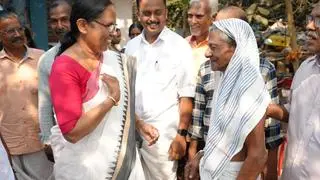As India entered the third phase of the nation-wide lockdown on Monday, May 4, many states wrecked financially by the 40 day lockdown allowed standalone liquor stores to reopen.
Sale of alcohol is one of the easiest ways for individual states to generate revenues, given the other transactions in goods and services as well as public and private transport will stay limited.
Alcohol sales attract excise duty, which is a major source of revenue for state governments where sale and consumption of liquor is not prohibited. Gujarat and Bihar are the only two major states where alcohol sale is currently completely prohibited .
Related Stories
With locks down, State revenues may get a ‘high’ from liquor sales
States eye excise from liquor sales to tackle fiscal crisis that has intensified with revenue contractionDelhi, Uttar Pradesh, Maharashtra, Assam, Karnataka, Chhattisgarh and Rajasthan were among the states that allowed the sale of liquor either across or the state or in select zones, much to the delight of those who were in forced abstinence.
Excise duty on alcohol is the third-largest source of own tax revenues for states, with an estimated contribution of 12.5 per cent in 2019-20. The state goods and services tax (SGST) and sales tax/value-added tax on petroleum products are the largest sources of revenues for most state governments.
Petroleum products are outside GST and therefore attract sales tax or VAT. The share of SGST in states’ own revenues for 2019-20 was estimated at 43.5 per cent and sales tax/value-added tax on petroleum products at 23.2 per cent.
State budgets and Excise duty on sale of Alcohol collections
States’ budget data published by the Reserve Bank of India in its annual publication titled State Finances: A Study of Budgets show that the excise duty on sale of alcohol at the all India level for 2019-20 was estimated at Rs 1,75,501.42 crore (Rs 1.75 lakh crore) . The report had estimated states’ own tax revenues for the year at Rs 14,09,325.33 crore (Rs 14.09 lakh crore) . States’ own tax revenues refer to taxes imposed and retained by states.
For instance, the Goods and Service Tax(GST) usually has two components – the central GST and state GST. The central GST, although collected by the state, is transferred to the central government. States also get a share in personal income and corporate taxes that are collected by the Centre.
States budget documents show that while excise duty is the third-largest sources of own tax revenue for states in the all-India average, it is the second-largest source of tax revenues for states such as Uttar Pradesh, Karnataka, West Bengal. In these states as also Madhya Pradesh, Chhattisgarh, Himachal Pradesh and Uttarakhand, the share of excise duty on alcohol in states’ own tax revenues was at least 20 per cent, according to a PRS India report published in December 2019 titled State of State Finances: 2019-20 .
Expected excise duty collection from Alcohol
The RBI state budgets study show that Uttar Pradesh had expected to collect Rs 31,517.41 crore as excise duty on sale of alcohol in 2019-20, Karnataka about Rs 20,950 crore and West Bengal Rs 11,873.65 crore, all of which was higher than the taxes estimated to be collected from the sale of petroleum products.







Comments
Comments have to be in English, and in full sentences. They cannot be abusive or personal. Please abide by our community guidelines for posting your comments.
We have migrated to a new commenting platform. If you are already a registered user of TheHindu Businessline and logged in, you may continue to engage with our articles. If you do not have an account please register and login to post comments. Users can access their older comments by logging into their accounts on Vuukle.